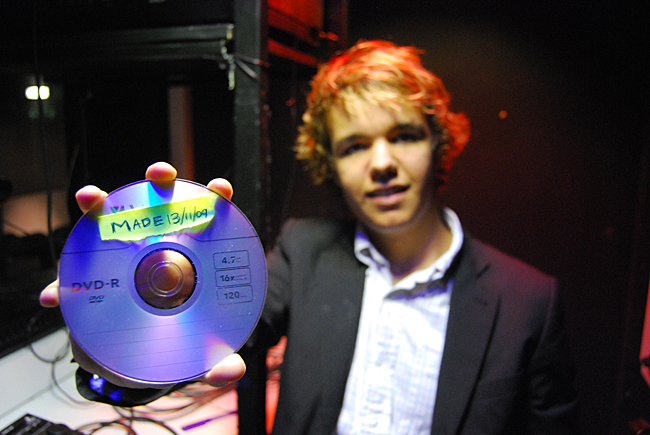JD Swanguen has accepted a sanction for a doping violation at the US Nationals earlier this year for testing positive for Carboxy THC, a metabolite of marijuana and/or hashish.
Looking at a race report of the event all the clues were there, “…JD rolled up to the start hut in a three-skin suit and in a cloud of smoke he was gone, he made a hash of the top section but roached it through the hot rocks and was up at the first spliff. He monged out on the bottom part of the track and went high as a kite over the last doubles but did good enough for a joint first place…blah blah blah”
But seriously is Cannabis a performing enhancing substance in a sport like downhilling where you need a pin sharp race head? Maybe it does relax the nerves a bit but surely the negatives like slowed reaction times don’t enhacne the performance.
I don’t condone taking the stuff because on a personel note eating to many bong cakes at college has fried my once pristine brain into a sloppy mess.
At the end of the day it’s on the banned list so that’s that.
JD said on Facebook:
” they’re (USA Cycling) doing there job. It was unfortunate that i am faced with these circumstances but it was a harmless mistake i have to learn from.”
I like JD Swanguen and think he’s a great character and talented rider to have on the race scene, hope this doesn’t affect his chances of getting a ride for the 2010 World Cup.

(Photos like this on FaceBook are bound to come back and haunt you)
Colorado Springs, Colo. (October 20, 2009) — USADA announced today that J.D. Swanguen of San Diego,
CA, an athlete in the sport of cycling, has tested positive for a prohibited substance and accepted a
suspension for his doping offense.
Swanguen, 20, tested positive for Carboxy THC, a metabolite of marijuana and/or hashish in the class of
Cannabinoids, in a sample collected on July 19, 2009 at the USAC MTB National Championships.
Cannabinoids are listed as Specified Substances and are prohibited under the USADA Protocol for Olympic
and Paralympic Movement Testing and the Union Cycliste Internationale, both of which have adopted the
World Anti-Doping Code and the WADA Prohibited List. Cannabinoids are listed as Specified Substances
because they could be susceptible to a credible non-doping explanation, and therefore use of those
substances can result in a reduced sanction.
Swanguen accepted a three-month period of ineligibility, which began on October 9, 2009, the day he
accepted the sanction. As part of his sanction, the period of ineligibility can be suspended and reduced to
time served since he accepted his sanction on October 9, 2009, upon completion of a USADA anti-doping
educational program. As a result of the doping violation, Swanguen has been disqualified from all
competitive results achieved on July 19, 2009, the date of his positive test, through and including the date
the doping education program is completed, including forfeiture of any medals, points, and prizes.
In an effort to aid athletes, as well as all support team members such as parents and coaches, in
understanding the rules applicable to them, USADA provides comprehensive instruction on its website on
the testing process and prohibited substances, how to obtain permission to use a necessary medication,
and the risks and dangers of taking supplements as well as performance-enhancing and recreational drugs.
In addition, the agency manages a drug reference hotline, conducts educational sessions with National
Governing Bodies and their athletes, and proactively distributes a multitude of educational materials, such
as the Guide to Prohibited Substances and Methods, easy-reference wallet cards, periodic newsletters, and
protocol and policy reference documentation.
USADA is responsible for the testing and results management process for athletes in the U.S. Olympic and
Paralympic Movement, and is equally dedicated to preserving the integrity of sport through research initiatives and
educational programs.





